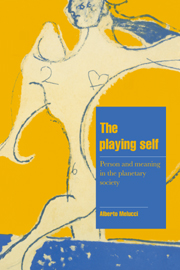Book contents
- Frontmatter
- Contents
- Introduction
- 1 The challenge of the everyday
- 2 Needs, identity, normality
- 3 Metamorphosis of the multiple self
- 4 The inner planet
- 5 Body as limit, body as message
- 6 On taking care
- 7 The abyss of difference
- 8 Amorous senses
- 9 Inhabiting the earth
- 10 A eulogy to wonder
- Epilogue
- Bibliographical note
- References
- Index
2 - Needs, identity, normality
Published online by Cambridge University Press: 04 October 2009
- Frontmatter
- Contents
- Introduction
- 1 The challenge of the everyday
- 2 Needs, identity, normality
- 3 Metamorphosis of the multiple self
- 4 The inner planet
- 5 Body as limit, body as message
- 6 On taking care
- 7 The abyss of difference
- 8 Amorous senses
- 9 Inhabiting the earth
- 10 A eulogy to wonder
- Epilogue
- Bibliographical note
- References
- Index
Summary
The needing self
The perception that we are lacking something seems to be one of the main-springs of our behaviour. The human species ceased to belong entirely to nature as only one animal species among many when, through developed language, it learned to give a symbolic representation to such a perception of lack and absence and the accompanying urge to overcome it. A culture is a symbolic universe which contains the gestures, the actions, and the words with which the fundamental experience of absence – as limit, death, and otherness – can be expressed.
Of this expressive ability were born meaningful action, the capacity to produce (harnessing forces of nature to overcome the constraints imposed by nature and to transform it), and the will to reproduce culturally. When children no longer represent just the biological perpetuation of the species but, instead, are invested with affections, expectations, and tasks intended to ensure the survival of the group, reproduction becomes culture. Hunger ceases to be a biological need when the gathering and the preparing of food is given a name, organized by group relations and regulated by codes. Even our basic physiological functions respond to a cultural code which decides what is clean and what is dirty, what is pure and what is impure.
If, then, there is no biological need that has not already been organized by language and social relations, it is impossible to talk of needs exclusively in natural terms.
Information
- Type
- Chapter
- Information
- The Playing SelfPerson and Meaning in the Planetary Society, pp. 24 - 41Publisher: Cambridge University PressPrint publication year: 1996
